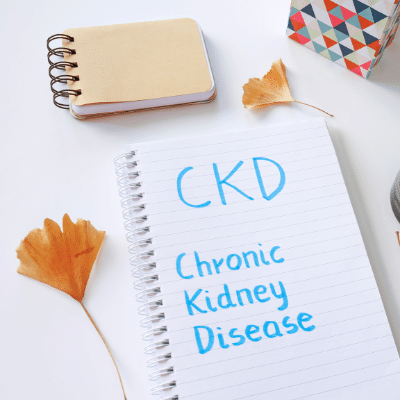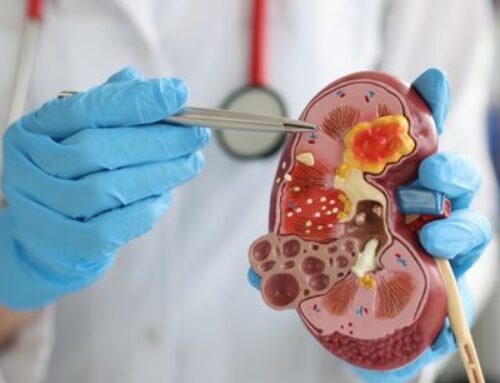How to Cope
Living With Chronic Kidney Disease (CKD) does not mean your life is over. Just in the United States alone, 37 million people are living with CKD. By managing this disease effectively, you could, in essence, slow down the irreversible damage to your kidneys. A consult with a nephrologist (kidney specialist) is an excellent place to start. Here are some other ways you can cope with and delay the progression of CKD.
 What is Chronic Kidney Disease?
What is Chronic Kidney Disease?
Before we discuss chronic kidney disease management, let’s define what CKD is and what causes it. Your kidneys typically serve several essential functions, including helping your body excrete waste in liquid form, filter blood, produce red blood cells, and maintain a balance of minerals and electrolytes. With CKD, your kidneys stop performing these functions in stages. The final stage, or Stage 5, refers to kidney failure, also known as end-stage renal disease (ESRD).
While anyone could experience CKD, some people are at higher risk of getting the disease and should seek medical help for early detection and treatment. The top risk factors include:
- Type 1 and Type 2 diabetes
- High blood pressure
- Heart disease
- Family history of kidney disease
- Autoimmune disease
- Smoking
- Obesity
- Being 60 or older
- Being Black, Native American, or Asian American
How to Manage Chronic Kidney Disease
Before you do anything, it’s best to visit a nephrologist first to receive a proper diagnosis, learn what stage of the disease you’re in, and obtain the best treatment plan tailored for you. In addition to following the treatment plan, you may need to have your blood and urine regularly tested to monitor the disease. Living With Chronic Kidney Disease means taking care of yourself. Other prevention and management tips involve:
Get your blood pressure and blood sugar in the target range
High blood pressure and diabetes typically harm blood vessels, including the nephrons in the kidneys, making them the most common causes of CKD. That is why getting your pressure and blood sugar levels under control should be a top priority. Modifying your diet and lifestyle by making changes, like consuming less salt, processed foods, refined carbs, and alcohol and being more active, can make a real difference in slowing the disease and improving your overall health.
Reduce your weight
Maintaining a healthy weight can help lower your blood pressure and prevent heart disease, two major risk factors for CKD. Once you start making healthier food choices and following an exercise program, you significantly diminish your chances of kidney failure.
Quit Smoking
Smoking cigarettes damages the kidneys or worsens existing kidney disease. If you’re having difficulty quitting, you can talk to your doctor, a support group, or a counselor about strategies to drop the habit.
What Does Treatment Entail?
Treatment of CKD depends on what your stage is and if you have any other health conditions. A nephrologist can determine the most suitable course of action to help you cope with any symptoms and minimize further damage to your kidneys. Some examples of treatment are:
- Taking iron, calcium, and vitamin D supplements;
- Receiving erythropoietin injections to stimulate red blood cell production;
- Using stool softeners for constipation and antihistamines for itching; and
- In more severe cases, going on dialysis to purify the blood or having a kidney transplant.
Living With Chronic Kidney Disease doesn’t have to be difficult. Richmond Nephrology Associates can help. If you have issues with kidneys, call us today.




